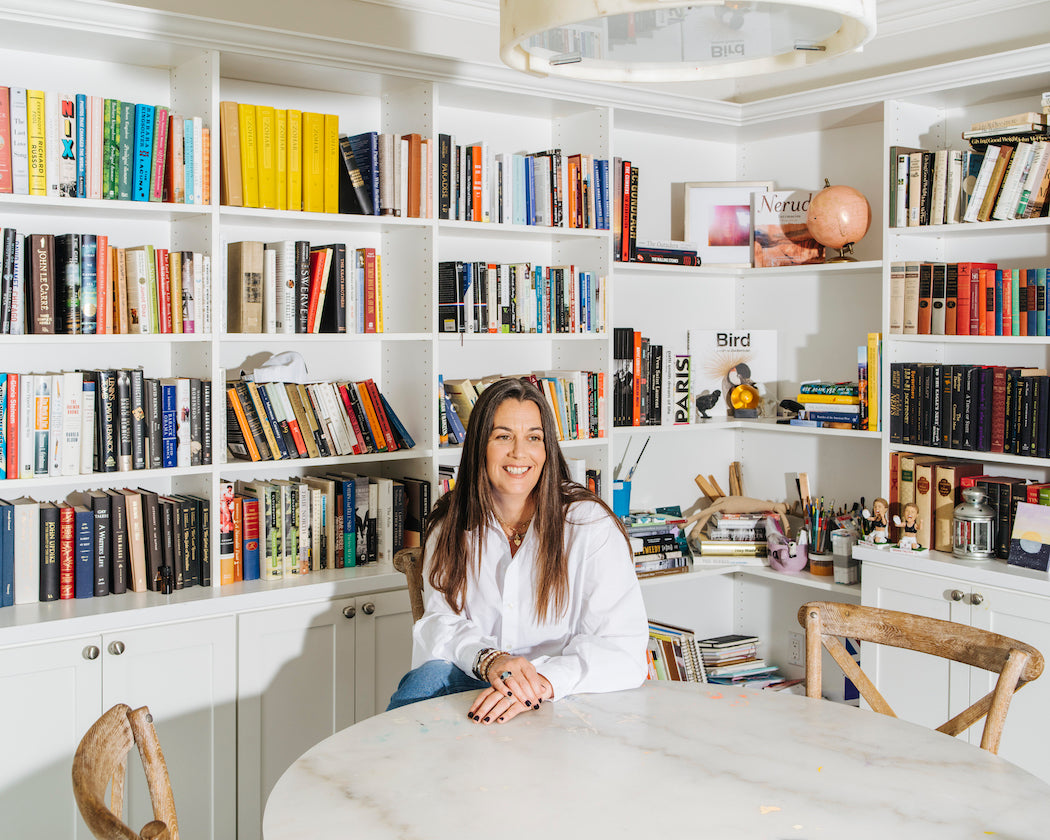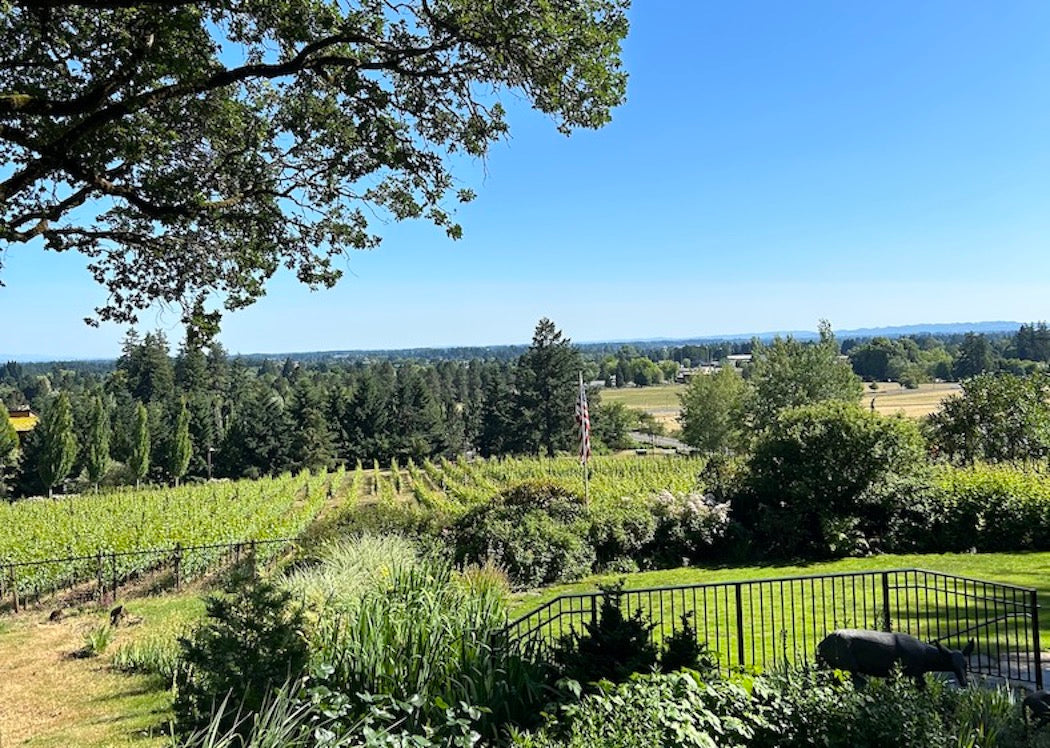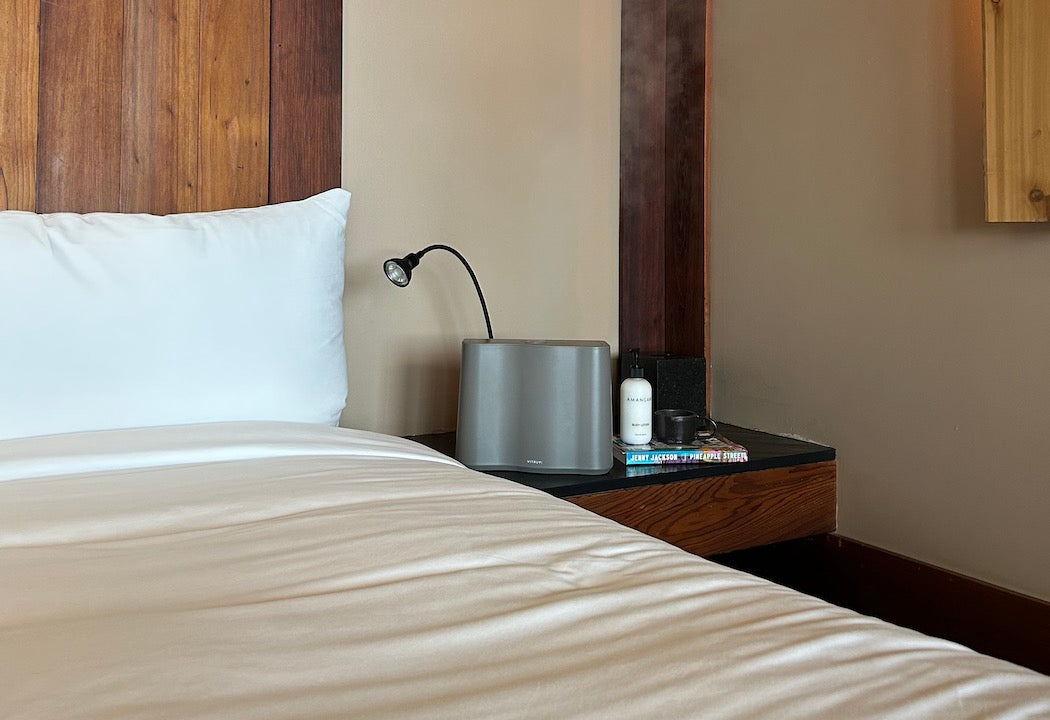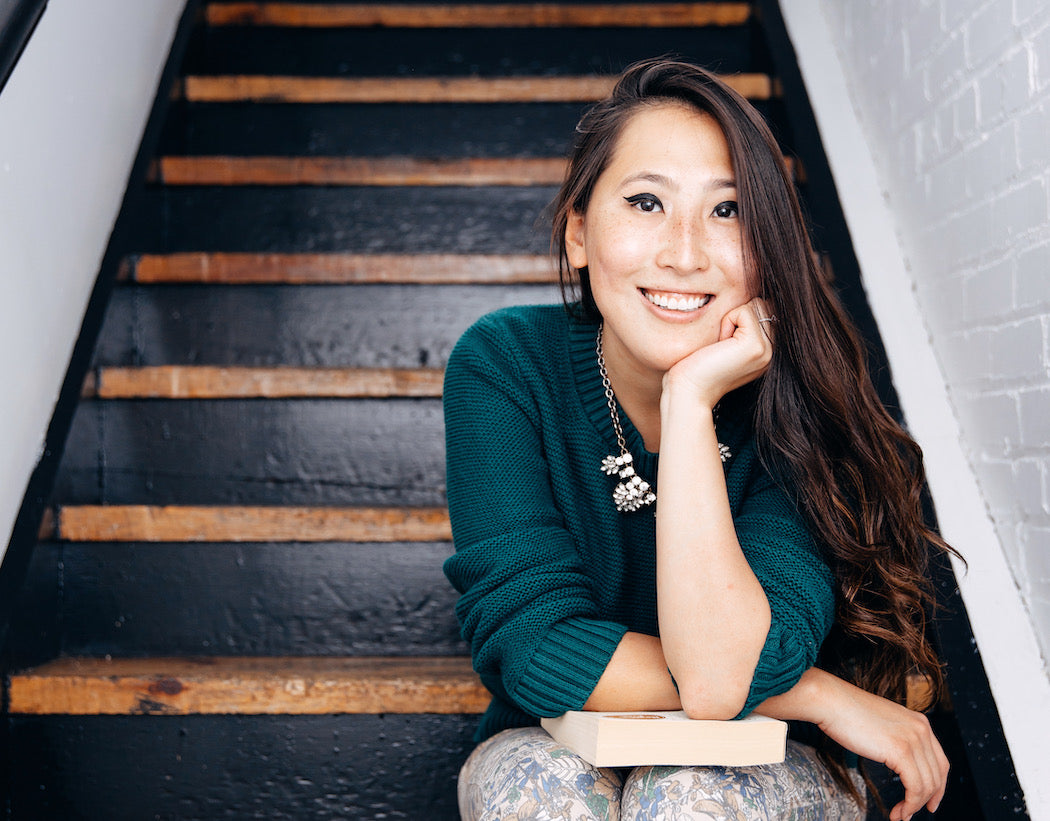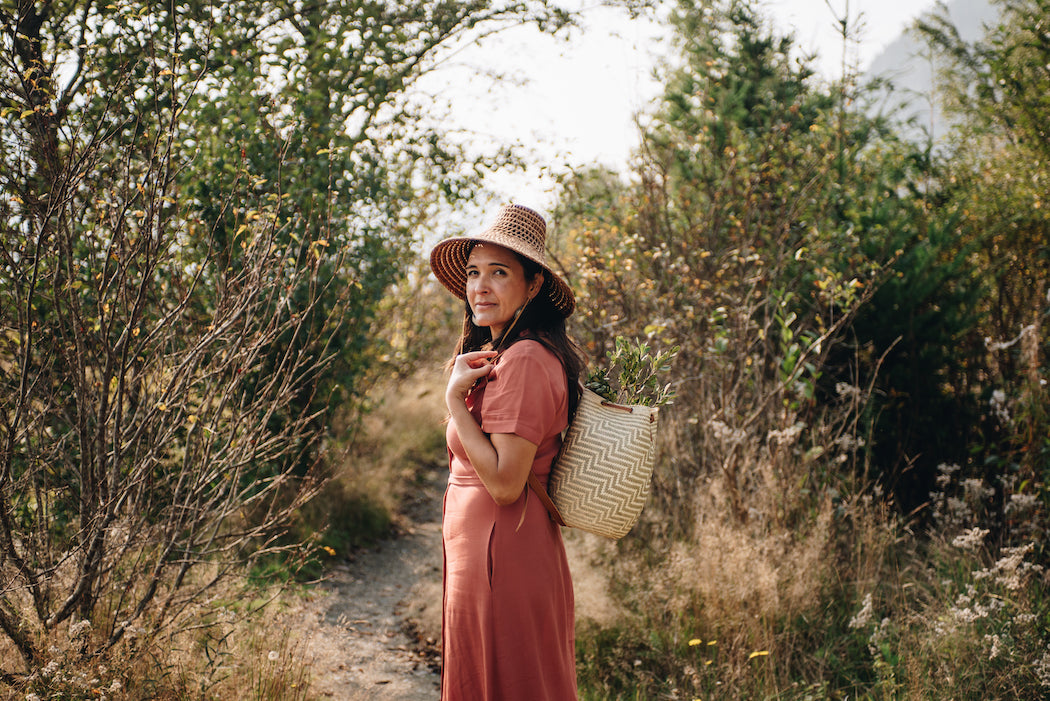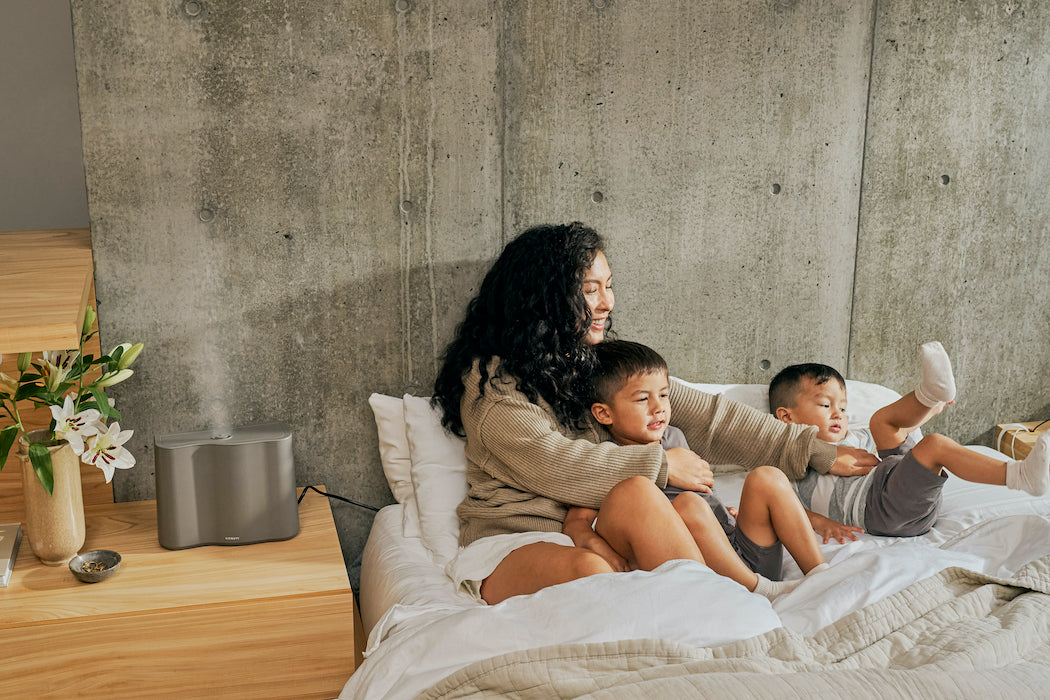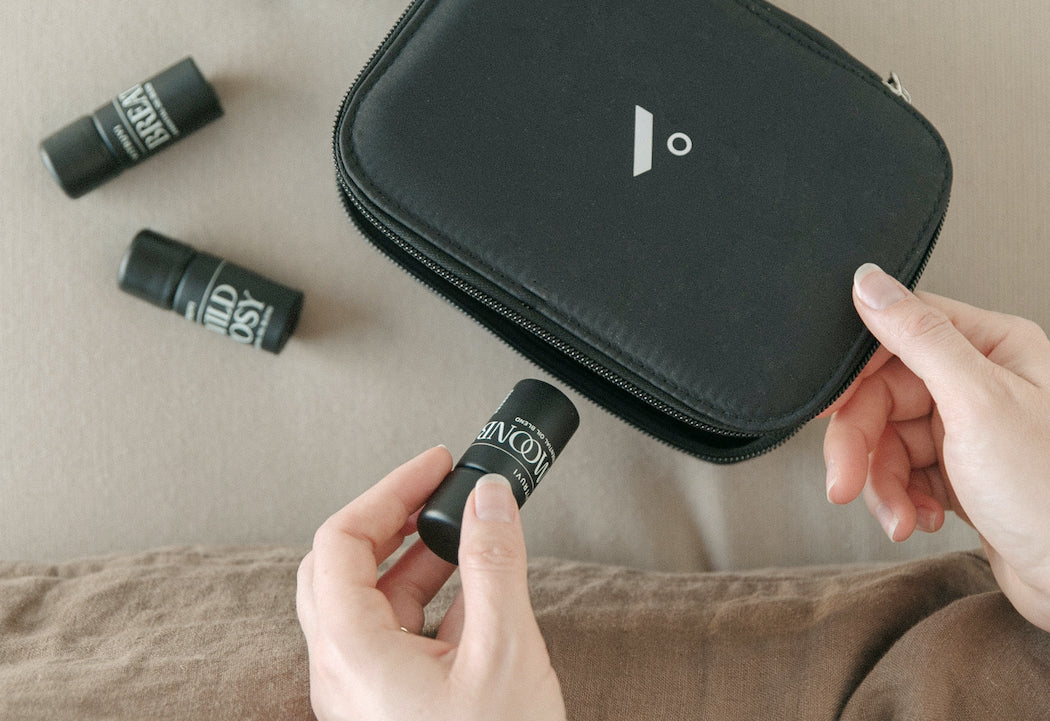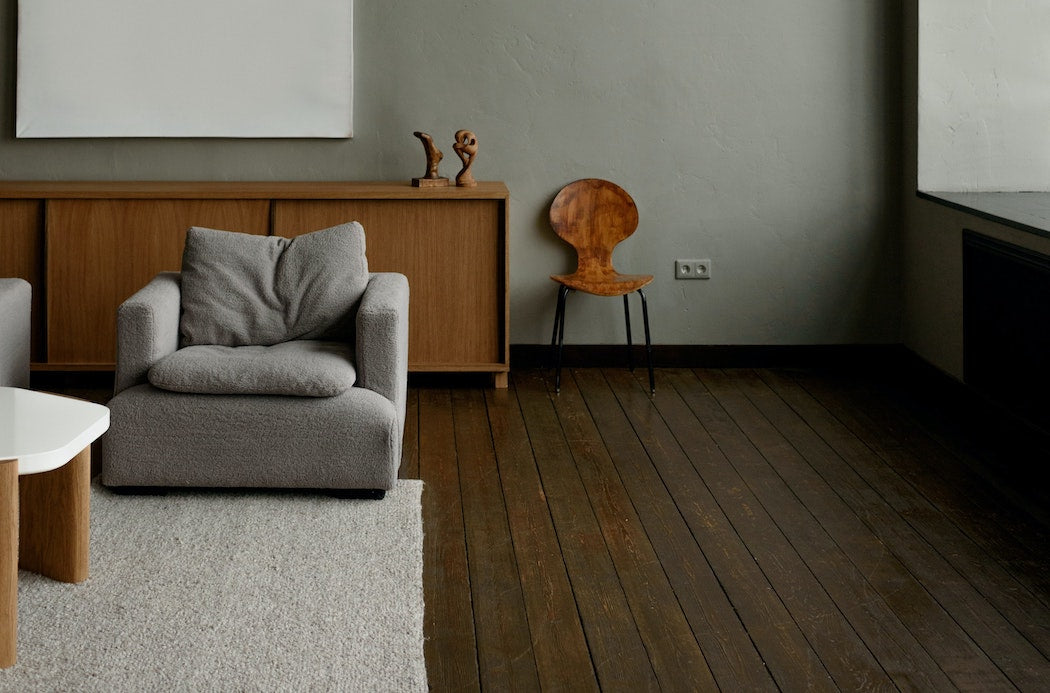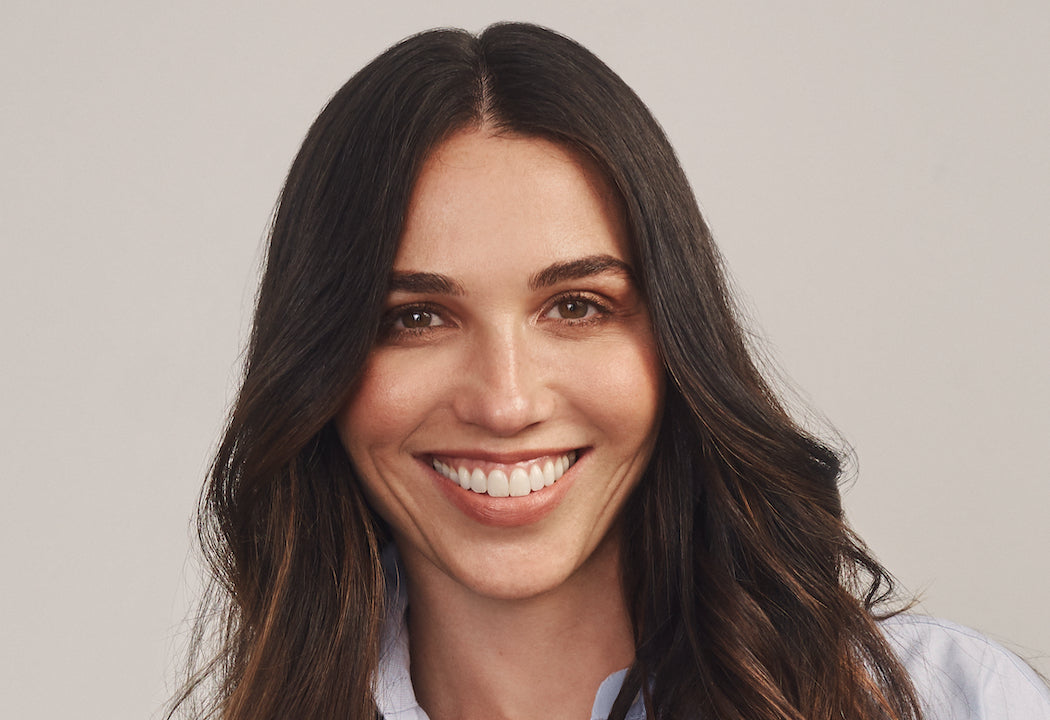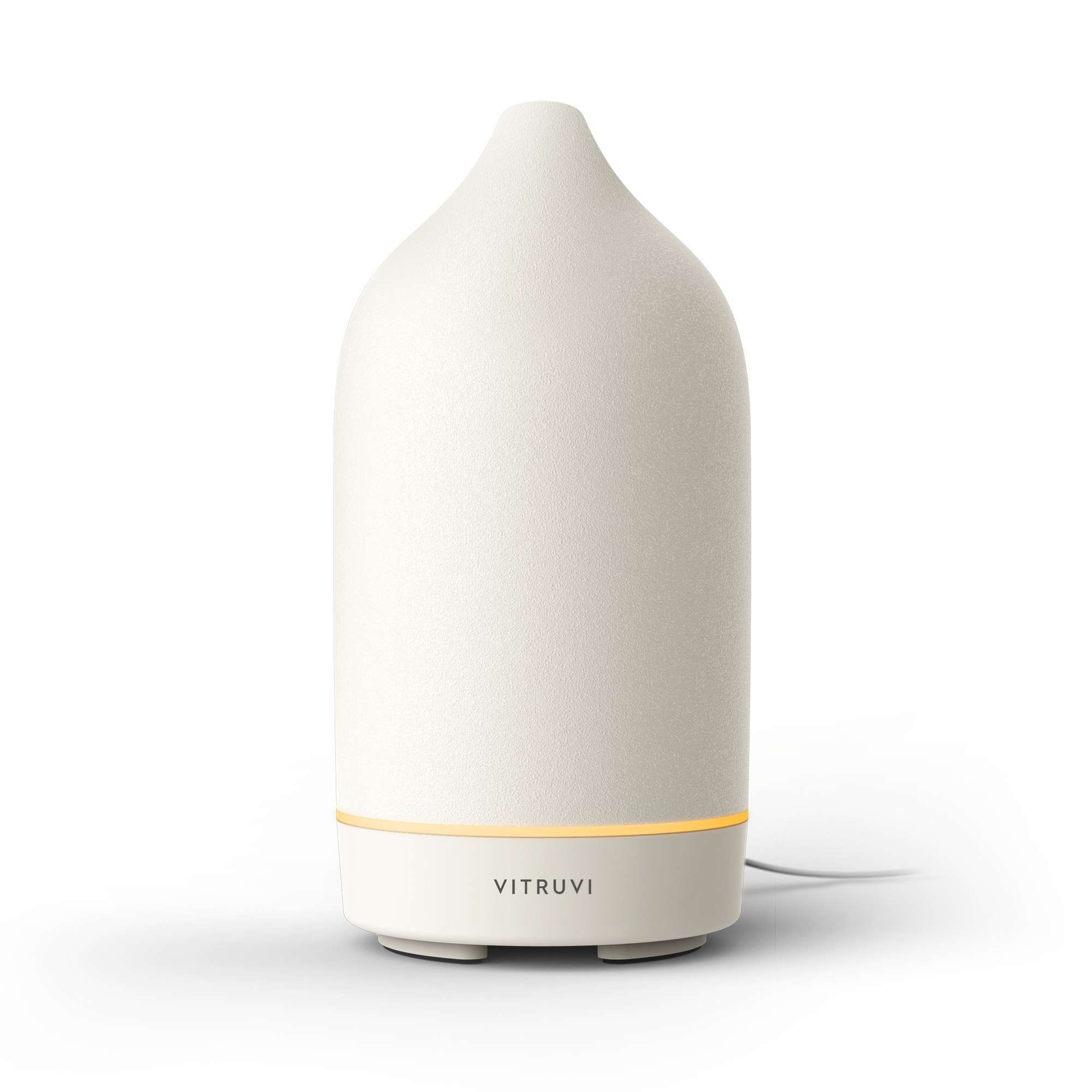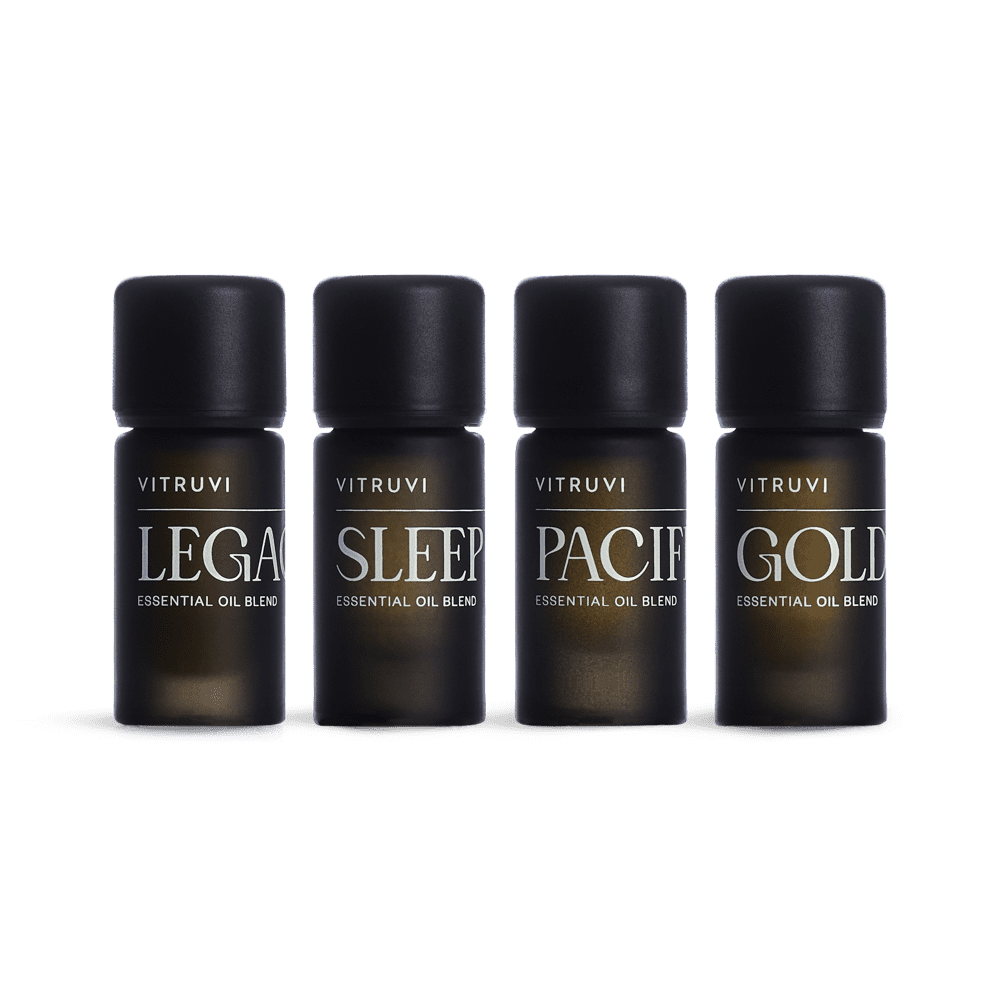Editor’s note: This interview and photo shoot were conducted many weeks ago—before the coronavirus pandemic forced North Americans to practise social distancing and self-isolation. We have chosen to move forward with publishing this piece because we believe that self-care is more important than ever, as is our desire to help our readers find inspiration and escape.
Amy Williams has an air about her that makes you want to tell her everything. Your life story, your fears, your biggest mistakes. Something about her eyes and her aura feels comforting and maternal—and not just because she’s the mother of lovely twin girls. She’s at once soft and commanding, a good listener and a thoughtful speaker. She’s also the CEO of Citizens of Humanity, a Los Angeles-based premium denim brand with global appeal and reach. And after having met her, it’s no wonder she’s held the title since 2015.
Citizens of Humanity, and its two sub-labels Agolde and Goldsign, represent a modern, sustainability-minded consumer who cares about fashion and the environment in equal measure. Citizens owns its production factory and wash facility, which are located right in Los Angeles, thus fuelling the local economy and controlling every step of the creation process. Which means less waste, more innovation, and an unwavering focus on high-quality denim for everyday. (It also means the brand can switch gears at a moment’s notice; in the unprecedented waters of the coronavirus pandemic, Citizens has offered up its Downtown LA factory to help make masks for California healthcare workers.)
For her part, Williams has always been a bit obsessed with jeans. No, really—her first job was at Gap, where she quickly climbed the ranks; then she moved to Lucky Brand, and finally to Citizens. “It’s funny, I’ll get emotional,” she says when asked about her devotion to denim. It’s not the only time she gets teary-eyed during the conversation; in an act of selfless honesty, she later opens up about her experience growing up adopted and eventually meeting her birth parents.
Family has long been important to her, even if her path wasn’t exactly conventional. But maybe her upbringing is what makes her so warm and full of heart today: she knows what’s at stake.
And she knows that taking care of herself is part of the puzzle, ensuring that she continues to show up for her family and her work. Seated on her home patio in the San Francisco Bay Area, Williams discusses some of the ways she pursues personal well being.
On quiet
“In the last, I would say probably five years, for me the biggest thing is making space in the day and having time that is either unscheduled or that allows my mind to quiet. So for me now, wellness can look like anything from listening and doing meditation—not necessarily every day, but five times a week—to reading instead of watching TV, and being clear that there’s already so much scheduled between work and the kids and things like that, that having these spaces of time where we can decide what we’re in the mood for or have quiet time is probably the biggest thing.”
On food
“I’ve always loved food, I just do. I like eating. I think food means so many things: it’s nurturing, or when you’re cooking it’s an expression of love and care. And I realized probably more recently that what I eat really helps change the way I feel. And so I eat a lot more vegetables than I ever did before.
Bowls of any kind. Tons of grilled salmon and some sort of grain, avocado, and vegetables. We could all just eat that every day. And we tend to multiple times a week.”

On books
“In the past, I used to read a lot of nonfiction, biographies in particular. And recently I’ve read some fiction that friends have given me, which I really like. It totally changes my mind because I’m not thinking about what I need to learn from it or some change I need to enforce upon myself.”
On meditation
“I use Headspace. I really like the different series and packs that they have. For me it’s nice to have that, and to know that it’s timed. It’s great. There are really short meditations, and there might be different subjects like sleep or stress.”
On taking breaks
“I work from home and travel to Los Angeles once or twice a week.
What I’ll do a couple times a week at 11:30 or 12, when I feel like I’ve got a decent amount done, is: I’ll go take a walk. It’s beautiful here; I leave the house and I can walk right up and within five or 10 minutes you’re on basically a private road and there’s no one around. The whole thing takes 30 or 40 minutes, and it’s exhilarating and reenergizing. I make a point of not making a plan to meet anyone so I can go at whatever time works for me. So that is also something: I don’t have to be working from 9:00 until 5:00 continuously. Actually taking a break in the middle of the day—and I‘ll tell people, ‘I’m going to go take a walk for 45 minutes,’ or I’ll just turn my phone’s ringer off for 45 minutes.”
On a good pair of jeans
“The importance and significance for me is: when I was really young, my mom always made me wear dresses, and I‘m a complete tomboy and I did not like it at all. It was fifth grade, and as you know at that age you start to become a little bit more independent and you have strong thoughts about what you want to wear and who you want to be friends with. My cousins had given me a pair of hand-me-down Levi’s and I started sneaking them into my backpack at school and changing my clothes. Fast-forward to when I first started working at the Gap in 1989, I was assigned to the women’s bottoms department—no one would ever call it that now, but that’s what it was called at the time—and it was pants and denim. We used to buy Levi’s, it was before the Gap really made women’s jeans. My boss at the time didn’t get along with our production manager, so therefore if he didn’t need to travel he wouldn’t, so I started going to the denim factories that we worked with. I loved it. It was so personal and individual.
Everyone I think feels comfortable in their own skin when they’re wearing jeans. It could be Wranglers, it could be Levi’s, it could be Citizens of Humanity. I think in the back of my mind that emotional memory is there: that it was the first expression of what I wanted to wear. And then also appreciating and watching the people who made the jeans and firsthand knowing how much it takes to make something look as beautiful and authentic as it does, was really special and it stayed with me. It’s been almost 30 years now of working with jeans.”
On doing what you love
“I was planning on going to law school. I was studying political science and I had yet another retail part-time job and I was like, ‘I love this, I love being in the store, I love the immediate gratification, I love being around people.’ I like things that are visually attractive. My birth father’s an architect and my brother’s the creative director of AllSaints, so I like to think sometimes there are things that are in your DNA. My father who raised me had once said that he didn’t like what he did. He was a doctor and people admired him; he was the warmest, most kind person, and it broke my heart. I remember thinking, ‘You don’t love what you do?’ He felt an obligation; he was the first one to go to college in his family and his parents wanted him to be a doctor so he did it, but he would have chosen something else. And so I thought [about retail and denim], ‘Oh my god, this feels so good, what if I can do this and get paid?’ And I always say to the girls, ‘Just find what you love, because you’re naturally going to want to work hard at it.’”

On opening up and letting go
“I definitely don’t think I’ve fully processed it yet, even though it’s been nine and a half years [since I met my birth parents]. I’m very close to my birth mother’s sister and their whole family. My birth mother initially was really receptive and then pulled back a lot, in part because she had children who didn’t know that she had another child. So we never had a real relationship, which was heartbreaking a second time. It still is hard for me. On the other hand I always think, ‘My aunts are in my life.’ Because my mother’s sister and I are extremely close, she’s like my mother; and my birth mother’s sister and I are really close. So I think things happen for a reason, and the two of them are incredibly nurturing and loving. And my birth father is great. My half-brothers will say, ‘My dad had this amazing life. He loves what he does, he and his wife have been married for 48 years, but there was always something that was a little sad, and we never knew what it was until you came along. And it switched in two seconds.’ So sometimes you picture something in your mind: ‘Oh, this is what it will be like when I meet my birth mother,’ but actually it was completely the opposite. People will surprise you. You just have to be open to those doors and not be afraid of what’s on the other side.”
This interview has been edited and condensed.

